
Newsletter - Publication 109
15th Aug 2021
|
|
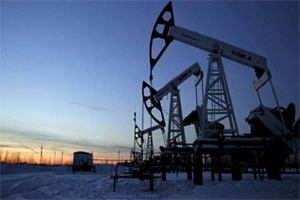
Pakistan to auction oil, gas blocks by year-end
Pakistan has announced that it will auction highly lucrative oil and gas exploration blocks, mainly the ones earlier awarded to exploration firms but their deals were later cancelled or remained under litigation, by the end of the year in an effort to increase hydrocarbon production. This would also help reduce the country’s reliance on expensive imported fuels. “The government is doubling down on its efforts to enhance gas production by launching the next exploration and production bidding round, targeting high-potential ‘surrendered’ and ‘under litigation’ blocks, by the year end,” the Ministry of Energy said in a statement. “Earlier, the government cancelled the awarded blocks in Dera Bugti (Balochistan) and Sindh after the winning companies failed to initiate work or develop the blocks for production or they were placed under litigation for some reason,” most of the blocks were cancelled after exploration firms failed to initiate work in the given time frame due to issues in the exploration areas. The government had auctioned 20 blocks late last year, accepted bids for 15 of them in January 2021 and awarded only six to the local oil and gas exploration companies in April. This suggests that the government is planning to invite bids again for the remaining 14 blocks including the ones whose deals were revoked or were placed under litigation.
|
|
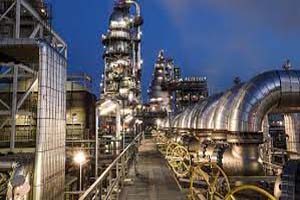
Chinese Companies Offer to Construct Oil Refinery in Pakistan
A syndicate of Chinese companies has offered to construct an oil refinery in Pakistan in a developmental proposition worth $15 billion. China Petroleum Pipeline Engineering Company Ltd. (CCP) and the China Zhen Hua Import and Export Corporation are willing to pool $15 billion for the project, the Secretary of the Board of Investment (BOI), told reporters in a statement. According to reports, the proposed oil refinery is expected to be established within the next four years. The refinery will not be built in any of the nine Special Economic Zones (SEZs) appropriated for the China-Pakistan Economic Corridor (CPEC). However, after it is built, the project can get a zone status, and if planned properly, may even receive special tax exemptions and related benefits from the government.
|
|

Pakistan LNG to provide KE gas for new plant
The state-owned Pakistan LNG Ltd (PLL) and private power utility K-Electric signed a formal agreement under which the former would supply 150 million cubic feet per day of regasified liquefied natural gas (RLNG) to the KE’s upcoming 900-megawatt power plant at Bin Qasim. The agreement would allow KE to start testing its first 450MW unit in the first week of September that will come into commercial operations by end of September or early October, depending on successful testing. This would be followed by commercial operations of second 450MW unit by end-December of the 900MW Bin Qasim Power Station (BQPS) III. The RLNG sale price would be as per monthly RLNG price notified by the Oil & Gas Regulatory Authority (Ogra). BQPS-III is KE’s flagship project valued at over $600 million that will add 900MW to KE’s generation supply and meet Karachi’s growing power demands, the ministry of energy said. The BQPS-III’s first unit was originally targeted to be commissioned in March 2021, followed by second unit in November 2021, respectively. The PLL will supply up to 150mmcfd RLNG to these power plants. According to the details provided by KE, the BQPS-III is a hi-tech and state-of-the-art combined cycle power plant located inside Bin Qasim Power Complex. The plant will be run on dual fuel as it may be fired on RLNG or high-speed diesel. The power plant will improve overall fleet efficiency, availability and reliability. Under revised timeline, the project was planned to be completed ahead of current summer season to support power shortage in the country’s largest city and industrial capital but was delayed due to Covid-19 related closure of factories in the Middle East and resultant delays in arrival of some critical equipment.
|
|
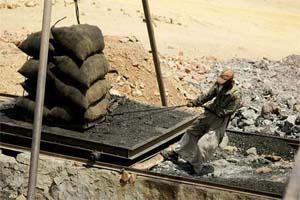
Hike in global coal price may push up cement, electricity rates at home
International coal prices have soared to their highest level since 2008, making further hikes in cement and electricity rates likely in the domestic market. The price of Australian coal, which is used as a benchmark by large coal-burning Asian economies, stood at almost $152 per tonne at the end of last month, up almost 195 per cent from a year ago. Even though local cement prices have increased Rs60-70 per bag in the last two months, a further price increase cannot be ruled out… However, pressure from the authorities can result in manufacturers abstaining from passing on the entire increase in the cost of production. Import from Australia and Russia is $180-plus per tonne. It’s $156 per tonne in case of South African coal, the largest supplier of to Pakistan. Pakistan imports 16 million tonnes of coal every year. Power plants burn about two-thirds of these imports while cement makers and general industry consume the rest. The International Trade Centre and the United Nations Statistical Division estimate the country imported 17.1m tonnes of coal in 2020. At the average unit price of $72, the annual import bill for the least-liked commodity remained $1.2 billion. More than one-fifth of electricity that Pakistan generated in 2020-21 came from burning coal.
|
|

Lucky gets permission to set up assembly plant for Samsung mobile devices
The Pakistan Telecommunication Authority (PTA) has formally allowed Samsung, a South Korean electronics giant, to start production of its mobile phone devices in the country through its local partner Lucky Motor Corporation Ltd. The PTA on Tuesday issued a Mobile Device Manufacturing (MDM) authorisation to Lucky Motor to set up an assembly plant in Karachi for producing Korean mobile devices. The PTA has so far issued around 25 MDM authorisations to foreign and local companies for the production of mobile devices (2G/3G/4G). The locally manufactured mobile devices will also be exported and will have a significant impact on reducing the imports of mobile devices and their accessories. “The authorisation to manufacture Samsung mobile devices in Pakistan was a landmark achievement and will help further revolutionise the vibrant mobile manufacturing ecosystem in the country,” the PTA said in a statement. The addition of Samsung to the list of companies that have established their assembly line in the country has been welcomed by existing players including Airlink, which is manufacturing major Chinese mobile phone brands including Huawei.
|
|
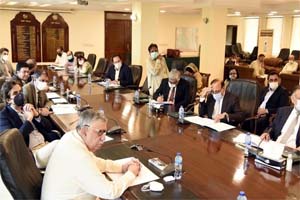
Scheme of Arrangement for revival of Pakistan Steel approved
The Cabinet Committee on Privatisation (CCoP) approved the issuance of Scheme of Arrangement (SOA) by the Privatisation Commission (PC) for the revival of Pakistan Steel Mills (PSM). The CCoP directed PC to expedite the process of soliciting Expression of Interest and make efforts to close the transaction at the earliest. The approval has now paved the way for PC to file the SOA with the Securities and Exchange Commission of Pakistan (SECP). This will include updated financial reports of the PSM and its subsidiary, approved by the Privatisation Commission Board for transferring the utility connections to the newly formed subsidiary without encumbrances, approval for the retention of the new subsidiary either by the government of Pakistan or PSM and the desired size of divestment among others. The CCoP has already approved the transferring of ‘Identified Core Operating Assets’ into wholly-owned subsidiary of PSM through the scheme of arrangement as provided in the Companies Act of 2017, followed by the sale of majority shares of the newly-formed subsidiary (without transferring of full ownership) to strategic private sector partner. For the revival of PSMC, the transaction structure was approved in December 2020, according to which a subsidiary was to be formed for transferring the identified assets and subsequent sale of majority shares of the newly formed subsidiary without transferring the ownership.
|
|
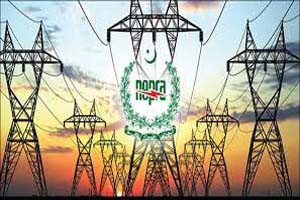
Power tariff hike – Government seeks NEPRA’s nod
Fears have become reality as the Ministry of Energy and Power has proposed new slabs for power consumers. Though the units for lifeline consumers have increased, According to reports, the IMF and the World Bank are once again pressing the country for an even more price hike in power tariffs. If these international financial institutions get their way, this new increase is likely to come in force at the beginning of 2022. One of the arm-twisting techniques used is to link IFI credits and loans with certain conditions such as power tariff hikes. The World Bank in a recent interaction with power managers of the country is reported to have linked its credit loan worth one billion dollars for energy projects with an increase in power tariff from January 1, 2022. The same applies to the IMF which also wants Pakistan to move in that direction. While the IMF programme amounting to six billion dollars is under suspension, the Fund is said to be intent on imposing a price hike before it agrees to release its next tranche of the deal to Pakistan. The way Pakistan’s power sector has been handled recently has not been helpful with still spiraling circular debt and ever-increasing prices.
|
|
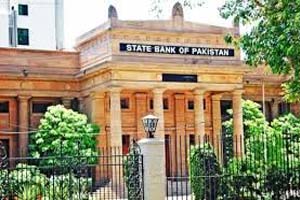
SBP hits eight banks with penalties
Pakistan’s central bank has charged eight banks with monetary penalties totaling at over half a billion rupees for violating various regulations of foreign exchange control rules during the quarter ended June 30, 2021. The State Bank of Pakistan (SBP) has time and again directed banks to ensure compliance with banking regulations including AML, CFT and foreign exchange regulations. It has adopted strictness over implementation of such rules in financial transactions in letter and spirit. “In addition to penal action, the bank has been advised to conduct an internal inquiry on breaches of regulatory instructions and take disciplinary action against the delinquent officials,” SBP directed one of the top five banks in the country. A leading bank was charged Rs289.09 million for “violation of regulatory instructions and general banking operations,” it said. The regulator (SBP) has hit eight banks with penalties ranging from Rs10-290 million, totaling at Rs525.24 million under the subject “details of significant enforcement actions by SBP during the quarter ended June 30, 2021,” according to a statement issued by the central bank. Other banks, mostly tier-II ones, were hit with penalties for violating rules related to foreign exchange, customer due diligence (CDD) and know-your client (KYC). Gathering of incomplete information about the clients may let criminal elements get access to banks and conduct
|
|
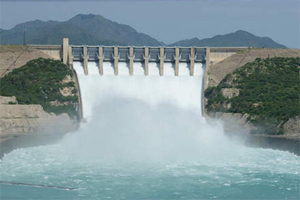
Tarbela-5 to boost energy production
The Tarbela Hydropower Project (T5) will help meet rapidly increasing requirements of water and electricity in the country while improving energy security by raising the share of clean and affordable energy in the country’s energy mix, federal Minister for Economic Affairs said while chairing a meeting to review the progress of T5 project, he directed that all the bottlenecks be removed to ensure the timely completion of the project. The World Bank has provided $390 million for the fifth extension of the project which will generate 1,410MW of electricity. The Asian Infrastructure Investment Bank (AIIB) has also committed an amount of $300m for the project. The representatives of Water & Power Development Authority (Wapda) said the contract for electro-mechanical works for the project had recently been awarded to a joint venture through an international competitive bidding. The project would be connected with the 500kV transmission line to be laid by National Transmission & Despatch Company (NTDC) separately for the evacuation of power. During the meeting, the World Bank team appreciated the efforts of Ministry of Economic Affairs and Wapda to put the project on track after initial delays due to various reasons.
|
|

PM inaugurates ship lift and transfer system at Karachi Shipyard
Prime Minister on Aug 10, inaugurated the ship lift and transfer system at Karachi Shipyard and Engineering Works. Addressing the inauguration ceremony, the PM paid tribute to Chief of Naval Staff for taking the initiative to launch the system. He further said that Pakistan was not able to progress and reach its potential as it was supposed to. However, the premier continued that he was happy to see that Pakistan is excelling in the field of technology. He said through the newly-launched system, adding that the country will endeavour to promote its exports and attract foreign investment. The ship lift will work as a large elevator platform to raise the ship out of water for dry-docking ashore and lowering it back into water after completion of work. The ship transfer system with its electro-hydraulic trolleys has been designed to transfer ships from shiplifts to dry berths on land.
|
|
|

© 2021 Alpine Marine Services Private Limited
all rights reserved
|
|